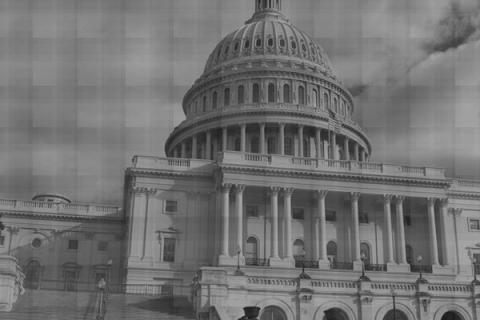President Obama is deflecting. Amid lagging poll numbers, a drawn-out oil crisis in the Gulf of Mexico, allegations of a criminal bribe to Congressman Joe Sestak, and fierce criticism from both parties (including harsh words of reproof from Democratic strategist James Carville and former Clinton advisor Dick Morris), Obama turned his attention to the Republican Party this week, verbally lashing Republicans for their negativity and lack of constructive solutions.
In remarks delivered Wednesday, Obama said that Republicans mostly "sat on the sidelines and shouted from the bleachers" during the economic crisis of the last two years. The President added that "We already know where their ideas led us, and now we have a choice as a nation. We can return to the failed economic policies of the past, or we can keep building a stronger future."
Finally, Obama criticized the Republicans for offering no solutions to improve our world, and saying that this is an inevitable result of their belief that government has only a minor role to play in society:
"To be fair, a good deal of the other party's opposition to our agenda has also been rooted in their sincere and fundamental belief about government. It's a belief that government has little or no role to play in helping this nation meet our collective challenges. It's an agenda that basically offers two answers to every problem we face: more tax breaks for the wealthy and fewer rules for corporations."
But Mr. President, what about the current Tea Party movement?
While they were castigated by the mainstream media as a group of enraged partisans, obstructionists, racists, and reactionaries who simply couldn't handle a Democratic presidential administration, and especially couldn't tolerate one headed by our nation's first black president, here in reality, the Tea Party has been surprisingly wonkish and very interested in the nuts and bolts of a more functional and successful set of public policies.
The original impetus for the post-Obama Tea Party was the $700 billion bailout of large corporations by a Republican Administration and Democratic Congress. The Tea Party's fierce opposition to this bailout and anyone who voted for it gives lie to Obama's criticism that the Right is only interested in handouts for corporations- quite the opposite is true. Republicans aren't just opposed to handouts for the wealthy, their opposition to corporate greed and irresponsibility has whipped them into a frenzy.
Another pet issue of the newly-animated, libertarian Right, is an audit of the Federal Reserve bank. That's right, conservatives are calling for more government regulation and oversight of this country's largest, most secretive, most unregulated private corporation there is, the Federal Reserve.
This isn't just an ideological issue, it's a practical policy solution to avoid future economic meltdowns, and despite the cosponsorship of H.R.1207 to Audit the Fed by every single House Republican, Democratic obstructionists Barney Frank and Nancy Pelosi have fought tooth and nail to prevent the audit bill from ever seeing a full vote on the floor of the House.
Republican Rand Paul of Kentucky, arguably the Tea Party's most visible and successful candidate for public office, frequently proposes other simple, common-sense, non-ideological policy solutions to create the kind of transparency and responsiveness in Washington D.C. that we thought we would be getting from an Obama Administration.
In his typical stump speech, Dr. Paul urges the Tea Party to hold a convention and adopt an official platform that includes a "read the bills" act that requires politicians to actually know what they're voting for, term limits to curb the ambitions of career politicians, and a balanced budget act (which would have prevented the unfunded tax cuts that Obama opposed in his speech Wednesday).
My question for the president, is why haven't we had a frank discussion about these public policy solutions, offered by Republicans on the "extreme" right? Why are he and the Pelosi-Reid Congress obstructing the passage of a bill that would provide more oversight of the world's most powerful and manipulative private corporation?
Either he's misleading about the Republicans when he says they have no solutions, or he just hasn't been paying attention.

